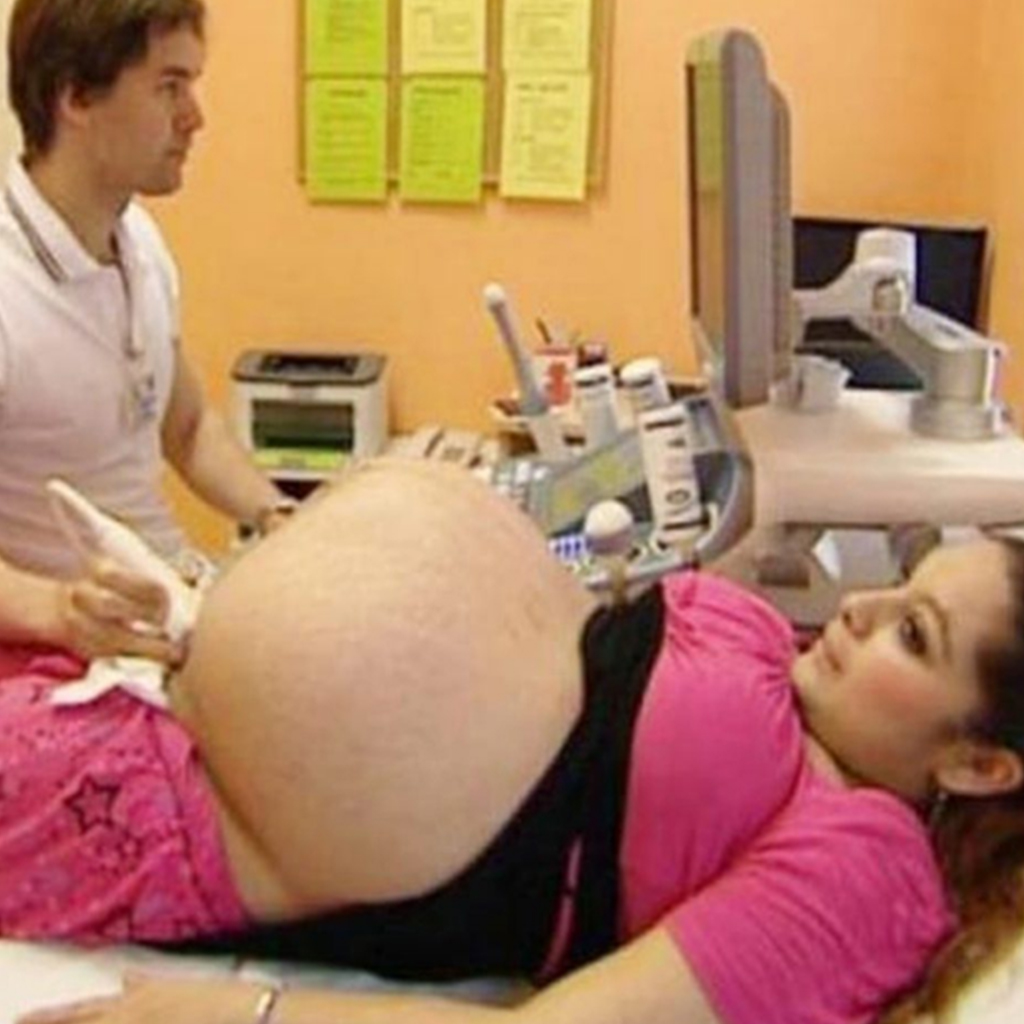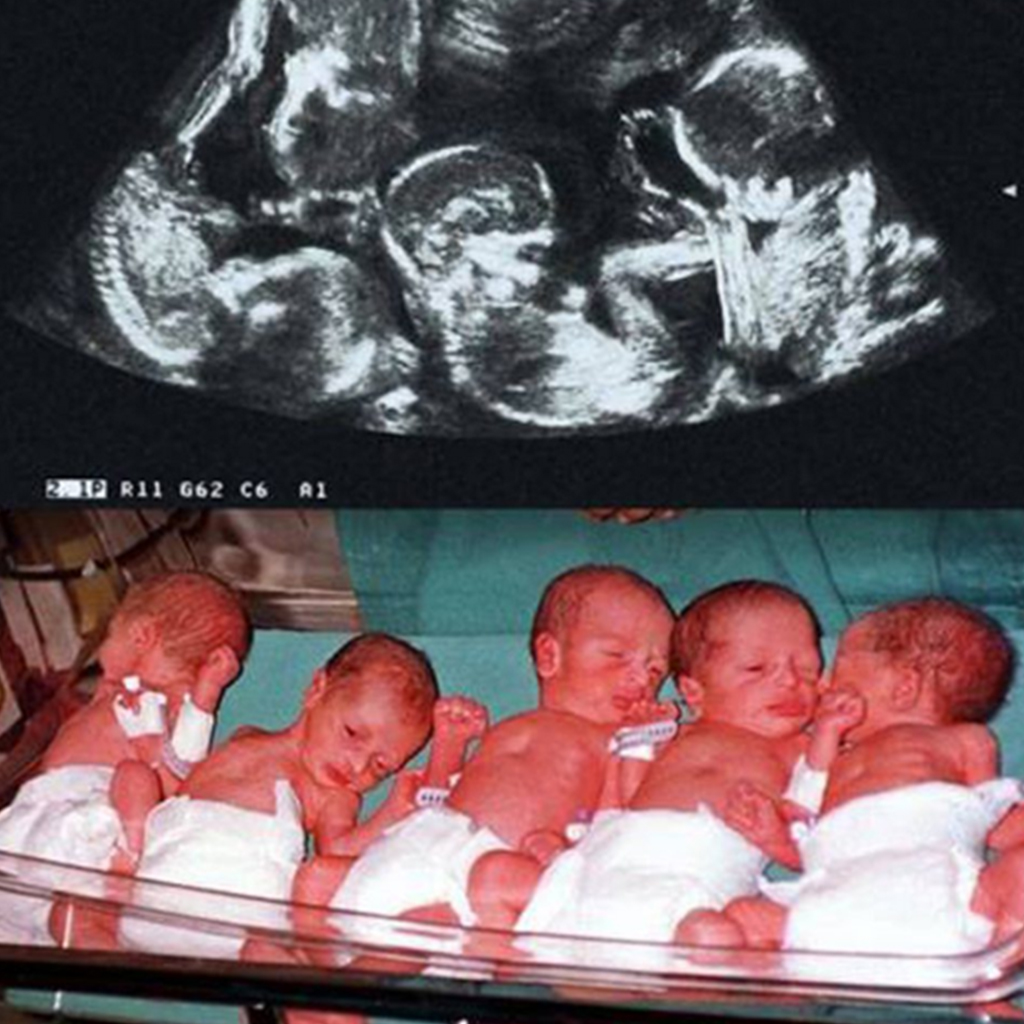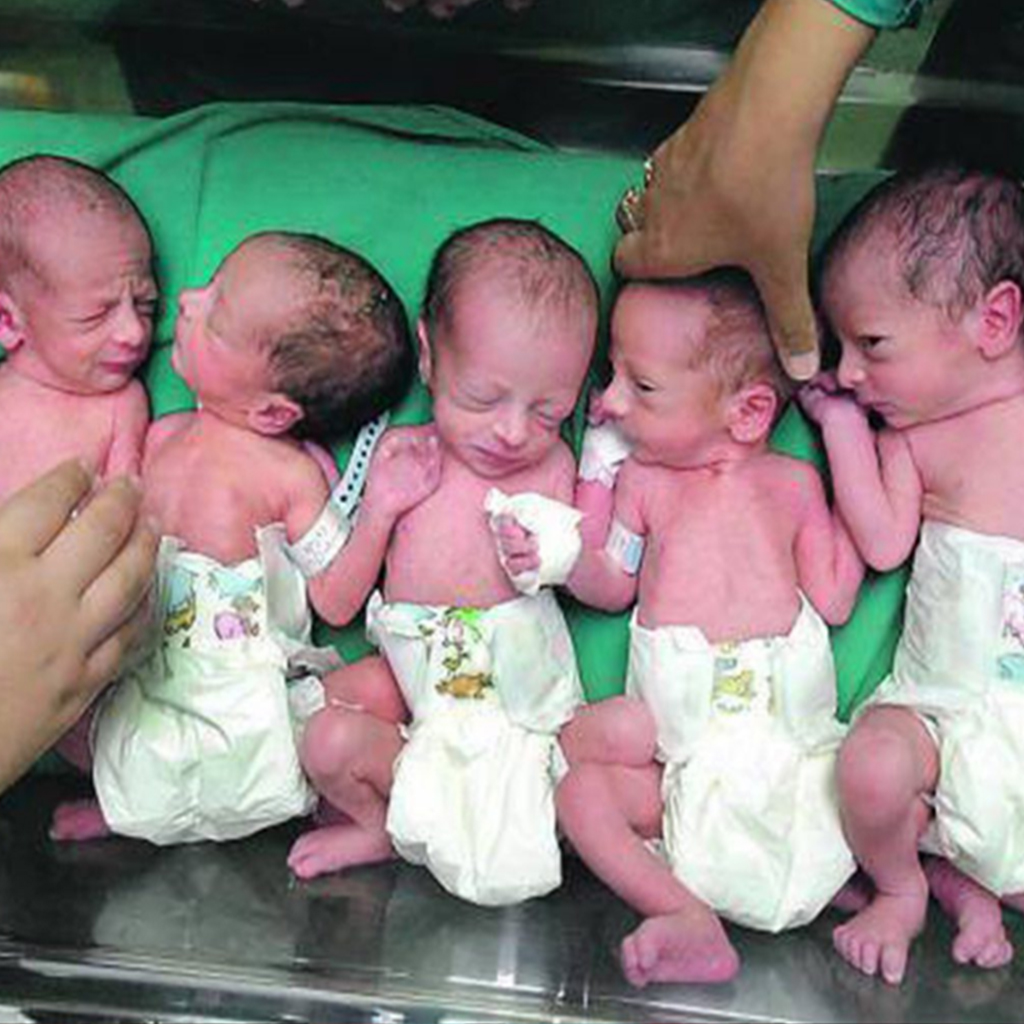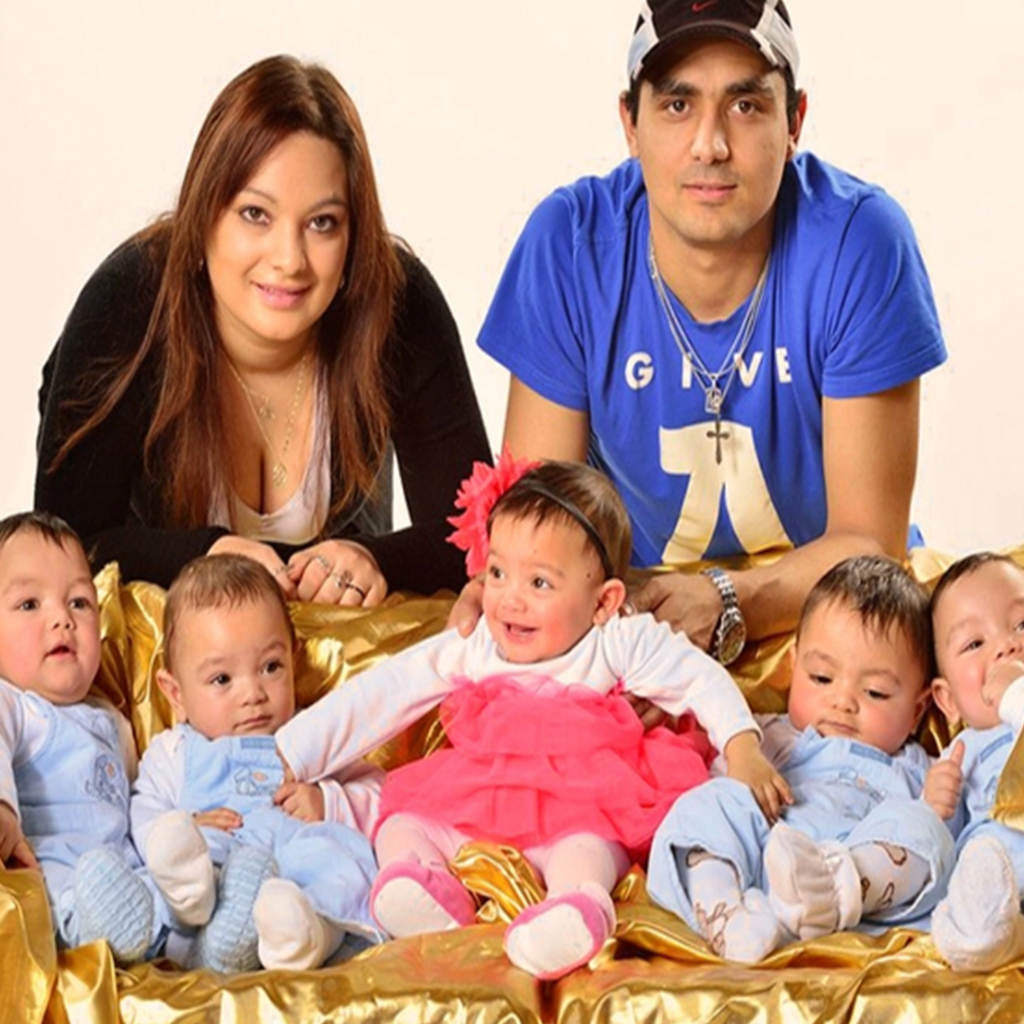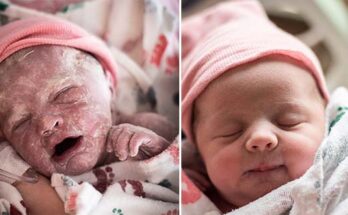A family’s great joy is a new baby. So, the grandmother and aunt will provide the pregnant woman additional care after the expectant parents inform the family that they are having a child. But what if a lady has two or even more children instead of just one? The couple Alexandra and Antonio sincerely desires to have several children. Thus, the couple made the decision to have more children after their first son reached a stage of relative independence. Being in good health, Alexandra performed her first ultrasound without any hesitation. The doctor’s remarks shocked the engagement.
They were quite shocked to learn they were having twins. Yet, they were content because they had to set up a room for two kids rather than just one. Yet Alexandra’s stomach was expanding in a concerning way. The new parents learned that the doctor had spotted the head of another baby during a follow-up checkup. Triplets – what a surprise! It came out, though, that the doctor had shared facts and emotions with the couple. He discovered a fourth head in addition to the third, then a fifth one.
Alexandra couldn’t help but be moved by all the unexpected news. She started crying and then realized what a delight and a wonderful blessing it was to have so many children. Doctors assumed right once that a caesarean section was the sole option for giving birth. Antonio was running late for the train because of his job pursuits even though he was scheduled to be with his loved one at this specific moment. Antonio remembers, “I grieved like a baby when I understood that this moment was going to miss me so much. 4 male and 1 female puppies were born to Alexandra in good condition. The days of Alex, Martin, Michael, Daniel, and Teresa are now five times happier than their parents’.
The fact that Alexandra Kinova never received in vitro fertilization is what makes her story so unique. They are thought to have given birth to the first kid in Czech Republic history. Since 1949, we have received domestic birth data, but five times was never mentioned then. In actuality, the country has a birthless period of 480 years on average. It is challenging to calculate the likelihood of identical twin births due to their rarity.

